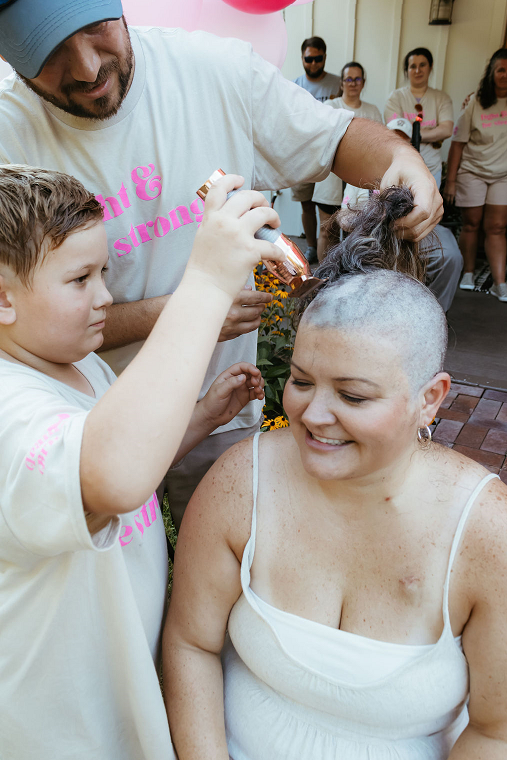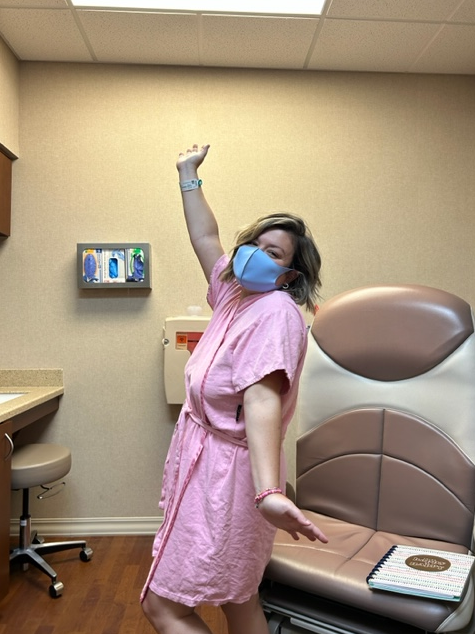
Caption
After her first round of chemo, then-35-year-old cancer patient Brittney Powell (right) decided she wanted to shave her head instead of waiting for her hair to fall out. So, on Aug. 6, 2023, she had a "head shaving party" with all of her friends and family. Her son Pike (bottom left) and her husband Buddy (top left) did the honors — then shaved their own hair in solidarity.
Credit: City of Hope Atlanta


